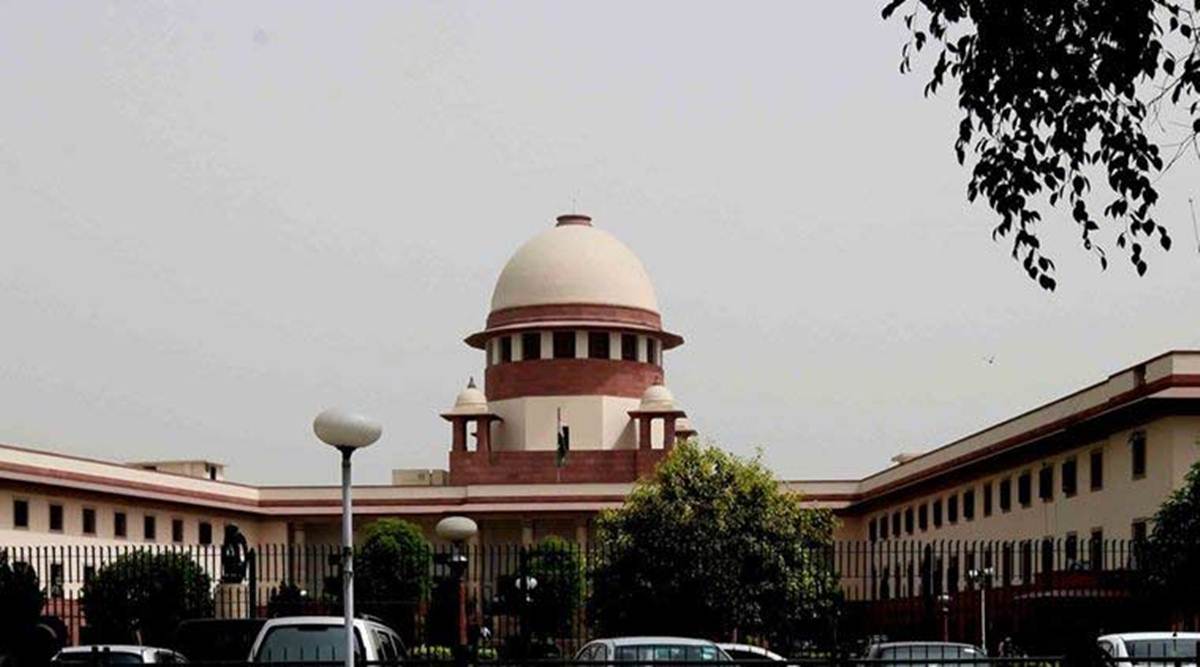 A Supreme Court bench headed by Chief Justice of India S A Bobde Monday asked a state government employee, who is facing charges of raping a relative when she was a minor, if he intended to marry her now.
A Supreme Court bench headed by Chief Justice of India S A Bobde Monday asked a state government employee, who is facing charges of raping a relative when she was a minor, if he intended to marry her now. A SUPREME Court bench headed by Chief Justice of India S A Bobde Monday asked a state government employee, who is facing charges of raping a relative when she was a minor, if he intended to marry her now.
“Will you marry her?” the CJI asked while hearing a petition against an order of the Bombay High Court setting aside a sessions court order granting anticipatory bail to the accused. “We are not forcing you to marry. Let us know if you will. Otherwise, you will say we are forcing you to marry her,” the bench said.
When the accused, a Maharashtra government employee represented by Advocate Anand Dilip Langde, replied that he had wanted to do so earlier but was married to someone else now, the apex court rejected his appeal. But the bench, also comprising Justices A S Bopanna and V Ramasubramanium, gave the petitioner interim protection from arrest for four weeks during which he can seek regular bail from the sessions court.
In his plea, the 23-year-old accused had prayed against being arrested saying that under the state’s rules, he will be suspended from service if detained for more than 48 hours. In an apparent reference to this line, the bench said: “You should have thought before seducing and raping the young girl. You knew you were a government servant.”
The woman had moved the Aurangabad bench of the Bombay High Court against the sessions court order and pointed out that she was still a minor when the incident happened.
In her plea, she had said that her consent or lack of it would therefore not make any difference to the charges. The sessions court ignored this and granted bail to the accused on the ground that she had sufficient maturity when the alleged crime occurred and that there was a delay in lodging the FIR, the woman had said.
According to her complaint, the accused started stalking her in 2014-15 when she was about 16 years old and studying in Class 9. Being a distant relative, he used to often visit their house. One day, the complaint stated, he clandestinely entered the house and raped her. He continued to sexually exploit her several times thereafter and she was afraid to disclose this to anyone, it stated.
Once, when she, her mother and a social worker went to the police to lodge an FIR, the mother of the accused convinced them not to do so and promised to accept her as a daughter-in-law, the complaint stated.
The accused, the complainant alleged, also got a declaration from her mother that there was an affair between the two and that they had consensual sex. It was also promised that since she was a minor, the marriage would happen after she turns 18, the complaint stated, adding that the accused went back on this following which the FIR was lodged.
Setting aside the trial court order granting anticipatory bail, the High Court had said that “one can easily conclude that going by the allegations, respondent No.2 (accused) has sexually exploited the applicant for a sufficiently long period since she was around 16 years of age”.
Referring to the purported declaration, the High Court had said that the accused “and his family seem to be so influential that they could get executed this writing from the applicant and her widowed mother”.
It had further said: “The very fact that they could get such writing executed is indicative and is sufficient to infer that respondent No.2 had indulged in sex with the applicant even when she was merely 16 years of age.”
Referring to the sessions court order, the High Court had also said that “the approach of the learned Judge (of the trial court)…clearly shows his utter lack of sensitivity in such serious matters”.